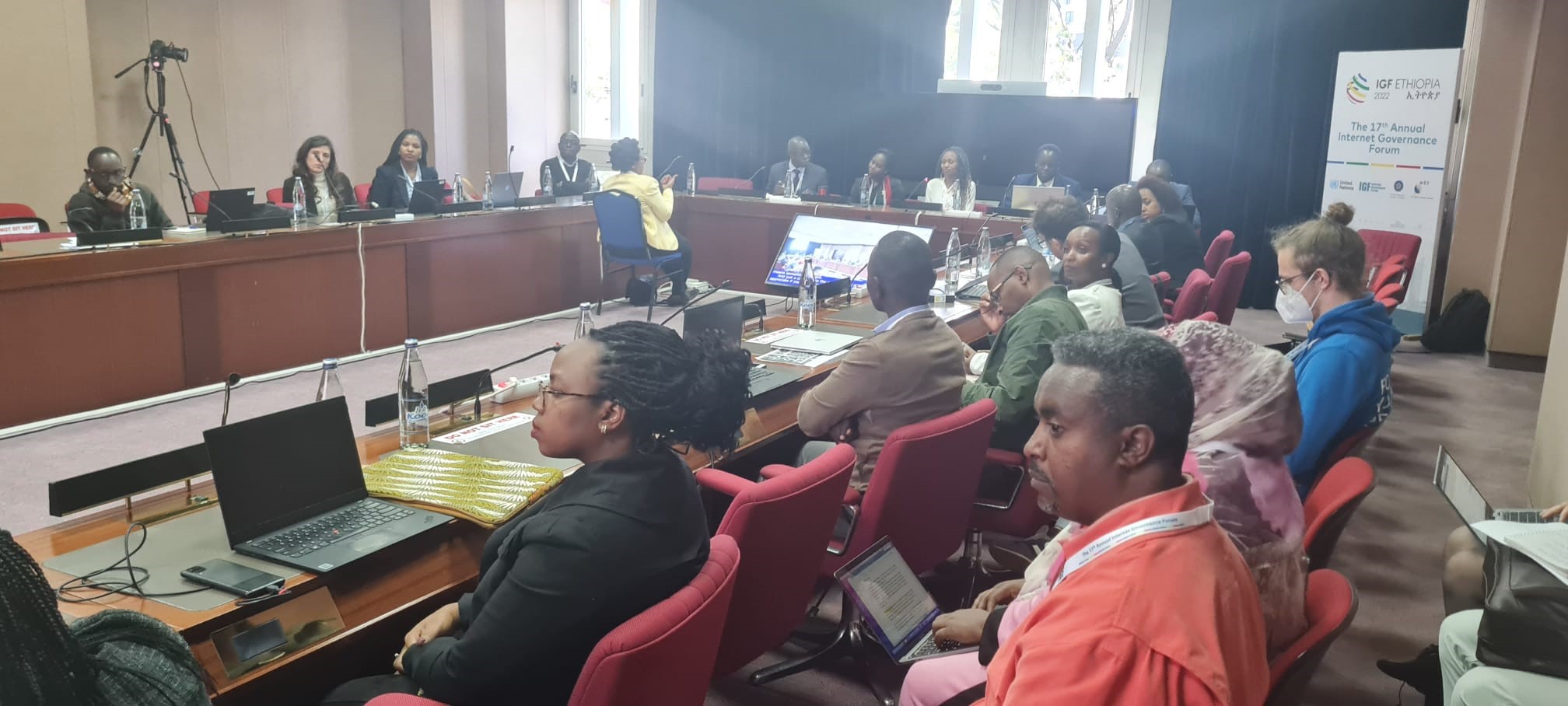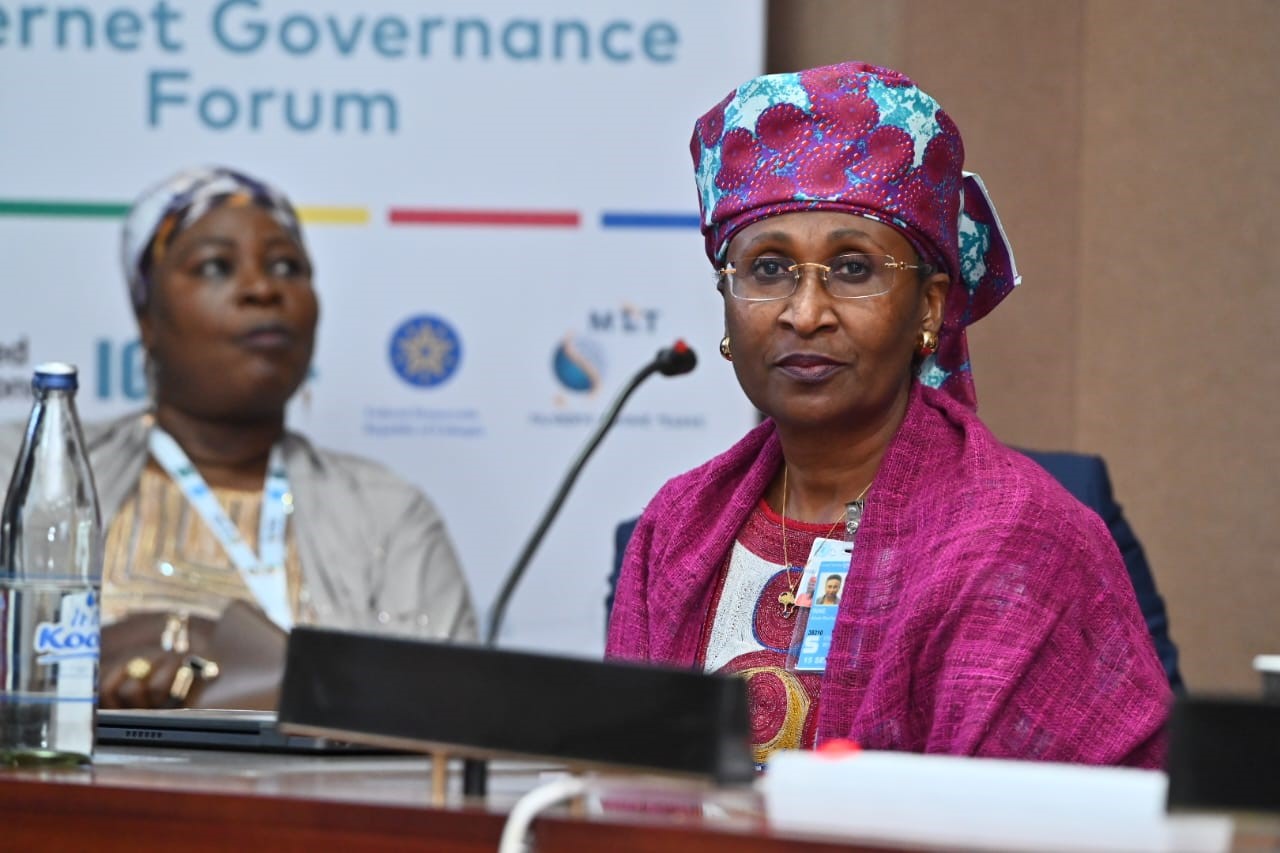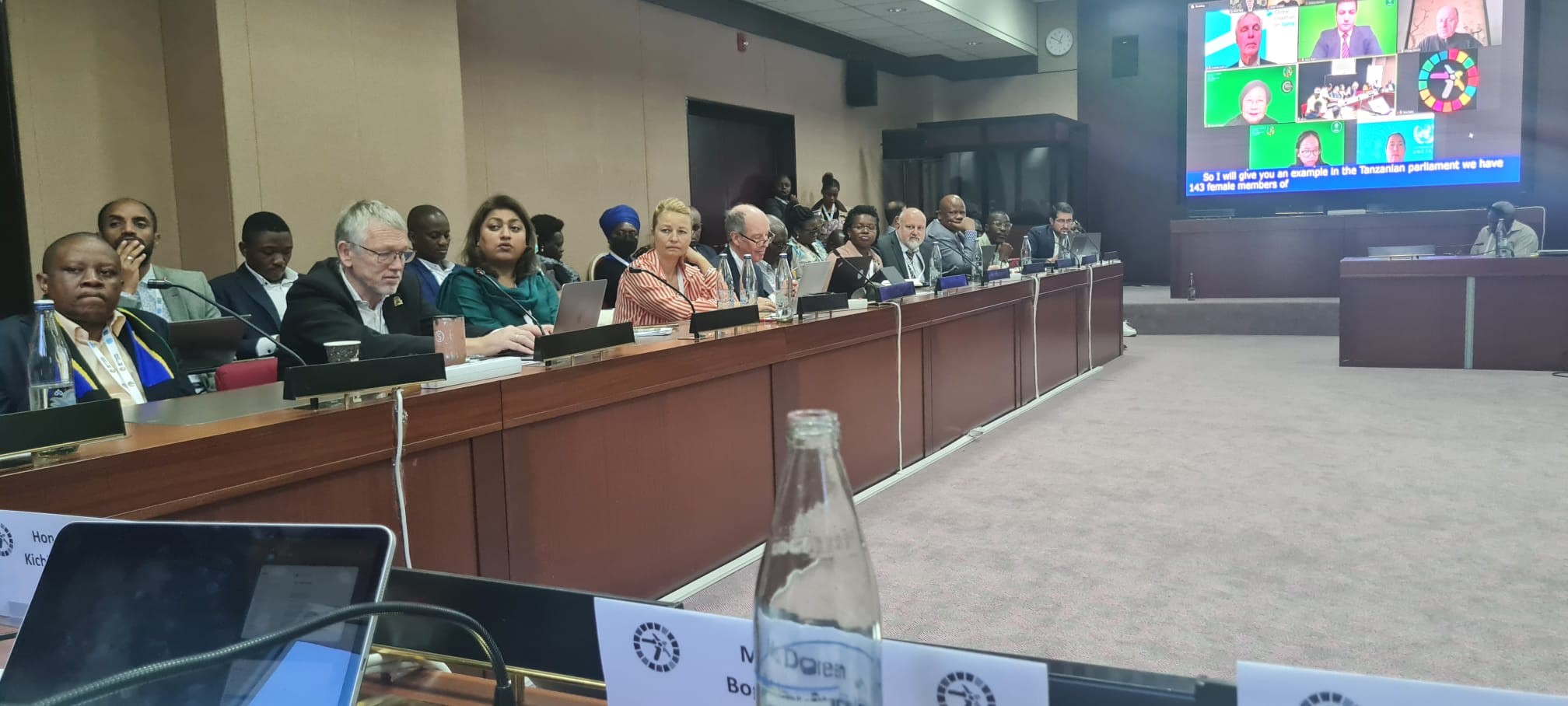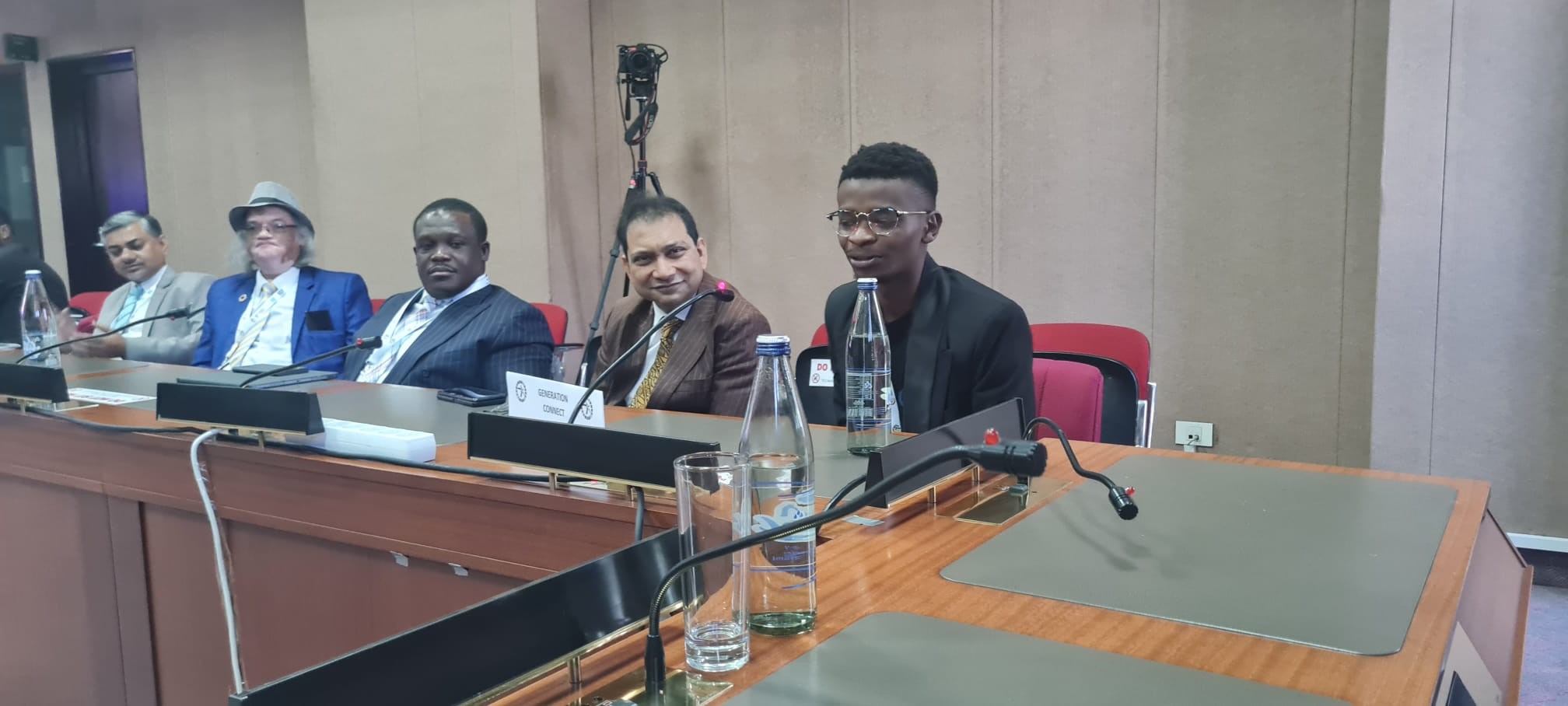First Meeting of the WSIS Forum 2023 Open Consultation Process (during IGF 2022)
WSIS
Session 117
The World Summit on the Information Society (WSIS) Forum 2023 Open Consultation process (OCP) aims at ensuring a participatory and inclusive spirit of the Forum. This process actively engages multistakeholders in the preparatory process to ensure broad ownership and further improvements of the Forum. The Open Consultation Process will include a collection of inputs from regional and national WSIS related events and therefore work towards shaping the themes and format of the WSIS Forum 2023.
The WSIS Forum represents the world's largest annual gathering of the ‘ICT for development’ community. The WSIS Forum, co-organized by ITU, UNESCO, UNDP and UNCTAD, in close collaboration with all WSIS Action Line Facilitators/Co-Facilitators, has proven to be an efficient mechanism for coordination of multistakeholder implementation activities, information exchange, creation of knowledge, sharing of best practices and continues to provide assistance in developing multi-stakeholder and public/private partnerships to advance development goals. This Forum will provide structured opportunities to network, learn, and participate in multistakeholder discussions and consultations on WSIS implementation. The Agenda and Programme of the Forum will be built on the basis of the submissions received during the Open Consultation Process and following the outcomes of the WSIS Forum 2022.
Furthermore, the WSIS Forum 2023 will provide an opportunity to serve as a platform to highlight the achievements of WSIS Action Lines in collaboration with the UN Agencies involved and provide information and analyses of the implementation of WSIS Action Lines since 2005.
The WSIS Forum 2023 is scheduled to be held from 13 to 17 March 2023 at the ITU Headquarters premises in Geneva, with the support of remote participation. The theme of the WSIS Forum 2023 is WSIS Action Lines for building back better and accelerating the achievement of the SDGs.
This session is part of the Open Consultation Process phases (phase II) that aims to provide updates on the preparations towards the WSIS Forum 2023 and to invite all stakeholders participate in an open discussion by sharing their ideas and plans.
Agenda
[12:00-12:30 EAT] High-Level Discussion
· Welcome Remarks Ms. Doreen Bogdan-Martin, BDT Director / Secretary-General-Elect, ITU
· H.E. Professor Isa Ali Ibrahim (Pantami), Minister of Federal Ministry of Communications and Digital Economy, Nigeria - WSIS Forum 2022 Chairman
· Dr. Tawfik Jelassi, Assistant Director General, UNESCO (co-organiser of WSIS Forum)
· Mr. Torbjörn Fredriksson, Head, E-commerce and Digital Economy Branch, UNCTAD (co-organiser of WSIS Forum)
· Hon. Ms. Neema Kichiki Lugangira, Member of Parliament and Founder of Omuka Hub, Tanzania - WSIS Gender Trendsetter
· Mr. Jean-Paul Adam, Director Technology, Climate Change and Natural Resources Management Division, UN ECA
· Mr. Michael Hodin, CEO, Global Coalition on Aging (GCOA)
· Ms. Mei Lin Fung, Chair and Co-Founder, People Centered Internet - WSIS Gender Trendsetter
[12:30-12:50 EAT] WSIS Forum 2023 Updates by Ms. Gitanjali Sah, Strategy and Policy Coordinator, ITU
[12:50-13:15 EAT] Open Discussion
Registration
Registration is mandatory to participate in the meeting onsite in Addis Ababa or online. Please find information about IGF 2022 registration here.
Venue:
- Physical: Large Briefing Room (LBR), UN Conference Centre, Addis Ababa
- Virtual: Please add this session: IGF 2022 Open Forum #109 WSIS 2023 | Internet Governance Forum (intgovforum.org) to your personal schedule on the IGF 2022 website. Kindly be informed that you need to register to get your personalized link to join the session. Each participant/panellist having added the session to their schedule, will have a different personalized link on their "Personal Schedule" page.
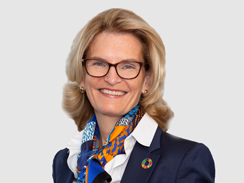
Doreen Bogdan-Martin is currently Director of the ITU Telecommunication Development Bureau. She took office on 1 January 2019, becoming the first woman in ITU history to hold one of the organization’s top elected management positions.
On 29 September 2022, Ms Bogdan-Martin was elected as ITU’s first-ever female Secretary-General by Member States at the Union’s Plenipotentiary Conference in Bucharest, Romania. She will take office on 1 January 2023.
Ms Bogdan-Martin is a strategic leader with more than 30 years’ high-level experience in international and inter-governmental relations and a long history of success advising governments around the world on policy and regulatory issues.
From 2008-2018, she led ITU’s Strategic Planning & Membership Department. She was instrumental in establishing the Broadband Commission for Sustainable Development, on which she has served as Executive Director for more than a decade, and was an architect of the annual Global Symposium for Regulators, the pre-eminent global event for digital policymakers, as well as director of ITU’s first global youth summit, #BYND. She pioneered and oversees ITU’s ongoing contribution to the EQUALS Global Partnership for Gender Equality in the Digital Age, and is leading ITU’s collaboration with UNICEF on the Giga project to connect all the world’s schools.
Ms Bogdan-Martin is a frequent speaker at top-level international policy events and has spearheaded ITU’s new Youth Strategy to more actively engage with the young people who are driving the next wave of digital transformation.
During her tenure as Director of BDT, she has led the implementation of a Results-Based Management system, improved internal accountability frameworks, and initiated a comprehensive review of reporting mechanisms across BDT’s global network of field and area offices, with a view to creating a more dynamic, responsive and fit-for-purpose organization.
Ms Bogdan-Martin holds a Master’s degree in International Communications Policy from American University in Washington, DC, post-graduate certification in Strategies for Leadership from the Institute for Management Development in Lausanne, Switzerland, and is certified in Accountability and Ethics by the United Nations Leaders Programme.
She is an affiliate of the Harvard University Berkman-Klein Center for Internet and Society, a Generation Unlimited Champion, and a Champion of the EDISON Alliance led by the World Economic Forum. She serves on a number of advisory bodies, including the Geneva-Tsinghua Initiative, the SDG Lab Advisory Board, the UN Technology Innovation Labs, and the Alumni Expert Council of the Internet Governance Lab of American University in Washington D.C. She is also a qualified amateur radio operator.
Ms Bogdan-Martin is married with four children.
BDT Director, Twitter: @ITUBDTDirector
Doreen Bogdan-Martin, Twitter: @DoreenBogdan
Doreen Bogdan-Martin, LinkedIn: linkedin.com/in/doreentbogdan
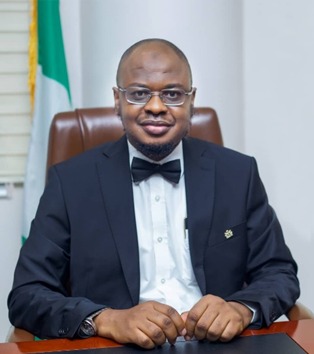
Prof. Isa Ali Ibrahim (Pantami) is the Minister of Communications and Digital Economy of the Federal Republic of Nigeria. Prior to his appointment as a Minister, he was the Director-General (DG)/Chief Executive Officer (CEO) of the National Information Technology Development Agency (NITDA). He serves as Chairman of several Presidential and Inter-Ministerial Committees. He has received over 150 awards, including the Award of Best Minister on multiple occasions. He lectured at universities for almost two decades and is currently a Professor of Cybersecurity at the Federal University of Technology, Owerri, Imo State. He is a Fellow of the Nigerian and British Computer Societies and is happily married with children.
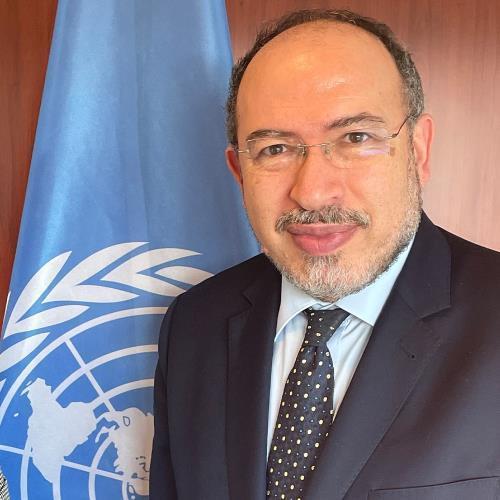
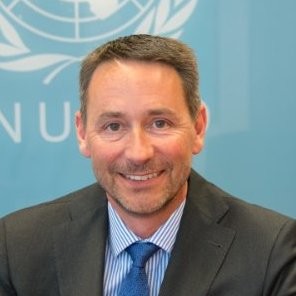
Torbjörn Fredriksson is the Head of the E-commerce and Digital Economy Branch at the UN Conference on Trade and Development (UNCTAD). The branch’s work covers the Digital Economy Report, the eTrade for all initiative, eTrade for Women, the E-commerce Week various capacity-building activities, and the Intergovernmental Group of Experts on E-commerce and the Digital Economy. He joined the UN in 2000. Before joining UNCTAD, he held positions at the Invest in Sweden Agency and the Swedish Ministry of Industry and Commerce. He has an MSc in International Economics from the Stockholm School of Economics.
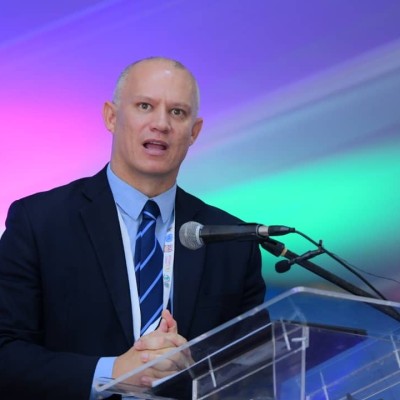

Hon. Neema Lugangira (MP) is a Member of Parliament in Tanzania who bring forward extensive experience and successful track record in championing policy and legislative reforms for improved investment enabling environment for the agricultural, mining and oil & gas and health sectors to mention a few. As a Parliamentarians her personal prioritised agendas include food and nutrition security; digital development, community health, gender equality in politics and NGOs sector development in Tanzania and across Africa. Her continued passion and commitment for sustainable and economic development not only in her country Tanzania but also Africa led her to be the Founding Chair of the African Parliamentary Network on Internet Governance (APNIG) and the Founding Chair of the Parliamentary Network on the World Bank and International Monetary Fund – Tanzania Chapter. Hon. Lugangira is also the Founder of two NGOs; Agri Thamani, which is committed to ending malnutrition in Tanzania; and Omuka Hub that aims to accelerate digital inclusion in peripheral regions of Tanzania. Internationally, Hon. Lugangira is a Member of the International Parliamentary Network on Education (IPNEd); the UNITE – Global Parliamentarians Network to End Infectious Diseases; serves as the Co-Chair of Global Parliamentary Group to Combat Neglected Tropical Diseases; Vital Voices Fellow; and WSIS Gender Trendsetter for Advancing Digital Gender Inclusion.
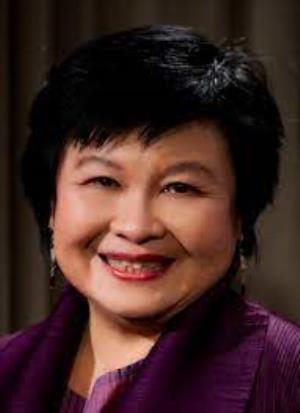
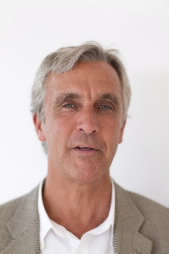
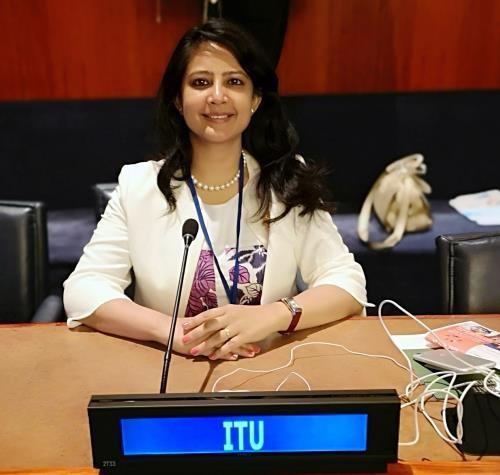
Gitanjali Sah is Strategy and Policy Coordinator at the International Telecommunication Union (ITU) and is responsible for the World Summit on the Information Society (WSIS) process. She has more than 15 years of work experience in ICT policy issues at the national, regional and international level. She is an experienced International Civil Servant having worked at several UN Agencies. She holds M.Phil. Development Studies, University of Cambridge, UK and a Masters in Political Science, Jawaharlal Nehru University (JNU), New Delhi, India.
-
 C1. The role of governments and all stakeholders in the promotion of ICTs for development
C1. The role of governments and all stakeholders in the promotion of ICTs for development
-
 C2. Information and communication infrastructure
C2. Information and communication infrastructure
-
 C3. Access to information and knowledge
C3. Access to information and knowledge
-
 C4. Capacity building
C4. Capacity building
-
 C5. Building confidence and security in use of ICTs
C5. Building confidence and security in use of ICTs
-
 C6. Enabling environment
C6. Enabling environment
-
 C7. ICT applications: benefits in all aspects of life — E-government
C7. ICT applications: benefits in all aspects of life — E-government
-
 C7. ICT applications: benefits in all aspects of life — E-business
C7. ICT applications: benefits in all aspects of life — E-business
-
 C7. ICT applications: benefits in all aspects of life — E-learning
C7. ICT applications: benefits in all aspects of life — E-learning
-
 C7. ICT applications: benefits in all aspects of life — E-health
C7. ICT applications: benefits in all aspects of life — E-health
-
 C7. ICT applications: benefits in all aspects of life — E-employment
C7. ICT applications: benefits in all aspects of life — E-employment
-
 C7. ICT applications: benefits in all aspects of life — E-environment
C7. ICT applications: benefits in all aspects of life — E-environment
-
 C7. ICT applications: benefits in all aspects of life — E-agriculture
C7. ICT applications: benefits in all aspects of life — E-agriculture
-
 C7. ICT applications: benefits in all aspects of life — E-science
C7. ICT applications: benefits in all aspects of life — E-science
-
 C8. Cultural diversity and identity, linguistic diversity and local content
C8. Cultural diversity and identity, linguistic diversity and local content
-
 C9. Media
C9. Media
-
 C10. Ethical dimensions of the Information Society
C10. Ethical dimensions of the Information Society
-
 C11. International and regional cooperation
C11. International and regional cooperation
-
 Goal 1: End poverty in all its forms everywhere
Goal 1: End poverty in all its forms everywhere
-
 Goal 2: End hunger, achieve food security and improved nutrition and promote sustainable agriculture
Goal 2: End hunger, achieve food security and improved nutrition and promote sustainable agriculture
-
 Goal 3: Ensure healthy lives and promote well-being for all
Goal 3: Ensure healthy lives and promote well-being for all
-
 Goal 4: Ensure inclusive and equitable quality education and promote lifelong learning opportunities for all
Goal 4: Ensure inclusive and equitable quality education and promote lifelong learning opportunities for all
-
 Goal 5: Achieve gender equality and empower all women and girls
Goal 5: Achieve gender equality and empower all women and girls
-
 Goal 6: Ensure access to water and sanitation for all
Goal 6: Ensure access to water and sanitation for all
-
 Goal 7: Ensure access to affordable, reliable, sustainable and modern energy for all
Goal 7: Ensure access to affordable, reliable, sustainable and modern energy for all
-
 Goal 8: Promote inclusive and sustainable economic growth, employment and decent work for all
Goal 8: Promote inclusive and sustainable economic growth, employment and decent work for all
-
 Goal 9: Build resilient infrastructure, promote sustainable industrialization and foster innovation
Goal 9: Build resilient infrastructure, promote sustainable industrialization and foster innovation
-
 Goal 10: Reduce inequality within and among countries
Goal 10: Reduce inequality within and among countries
-
 Goal 11: Make cities inclusive, safe, resilient and sustainable
Goal 11: Make cities inclusive, safe, resilient and sustainable
-
 Goal 12: Ensure sustainable consumption and production patterns
Goal 12: Ensure sustainable consumption and production patterns
-
 Goal 13: Take urgent action to combat climate change and its impacts
Goal 13: Take urgent action to combat climate change and its impacts
-
 Goal 14: Conserve and sustainably use the oceans, seas and marine resources
Goal 14: Conserve and sustainably use the oceans, seas and marine resources
-
 Goal 15: Sustainably manage forests, combat desertification, halt and reverse land degradation, halt biodiversity loss
Goal 15: Sustainably manage forests, combat desertification, halt and reverse land degradation, halt biodiversity loss
-
 Goal 16: Promote just, peaceful and inclusive societies
Goal 16: Promote just, peaceful and inclusive societies
-
 Goal 17: Revitalize the global partnership for sustainable development
Goal 17: Revitalize the global partnership for sustainable development
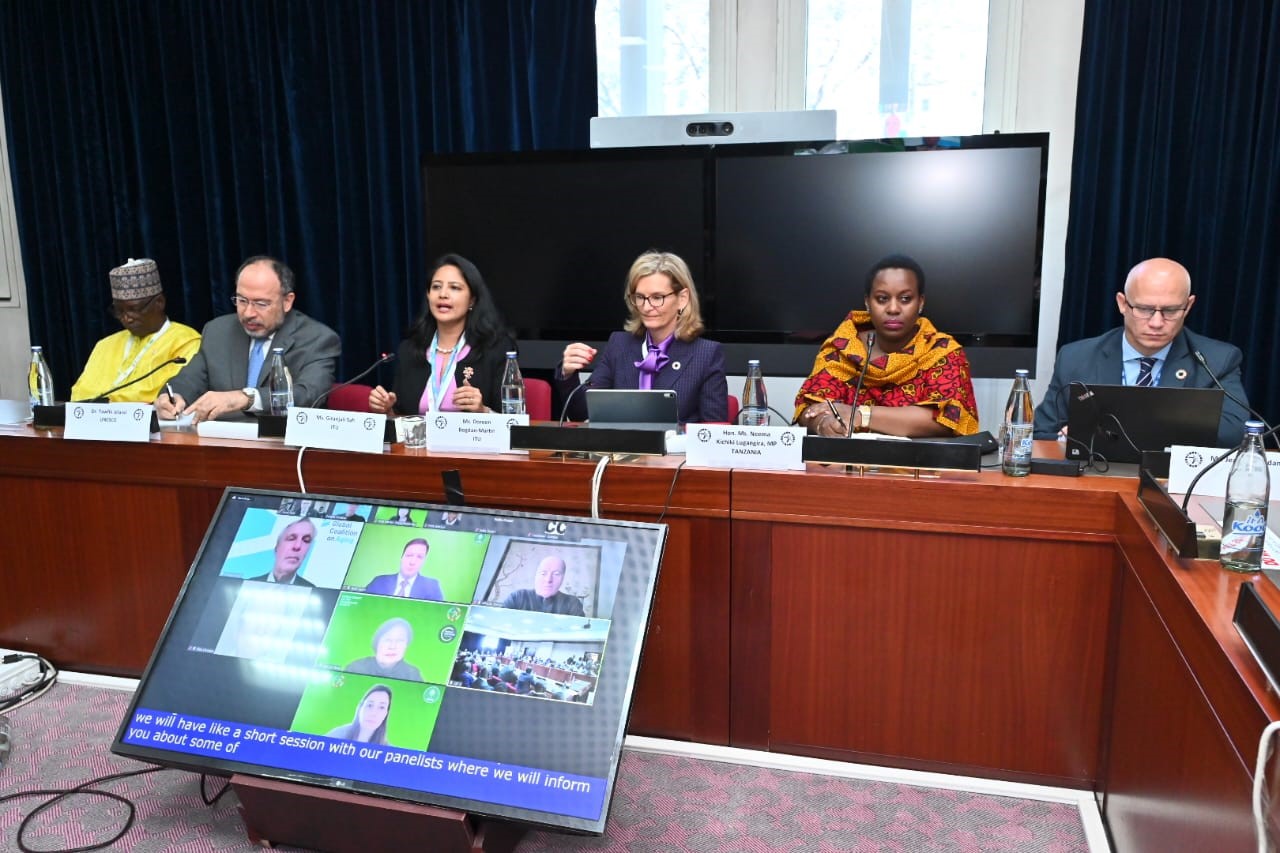
.png?maxwidth=2160)
.png?maxwidth=2160)
.png?maxwidth=2160)
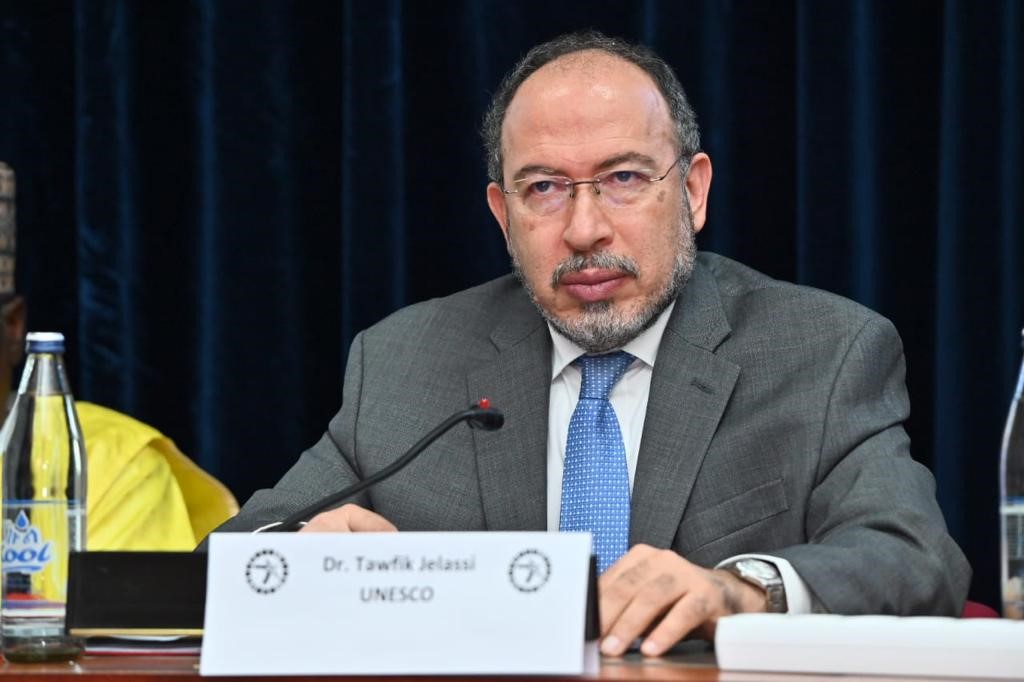
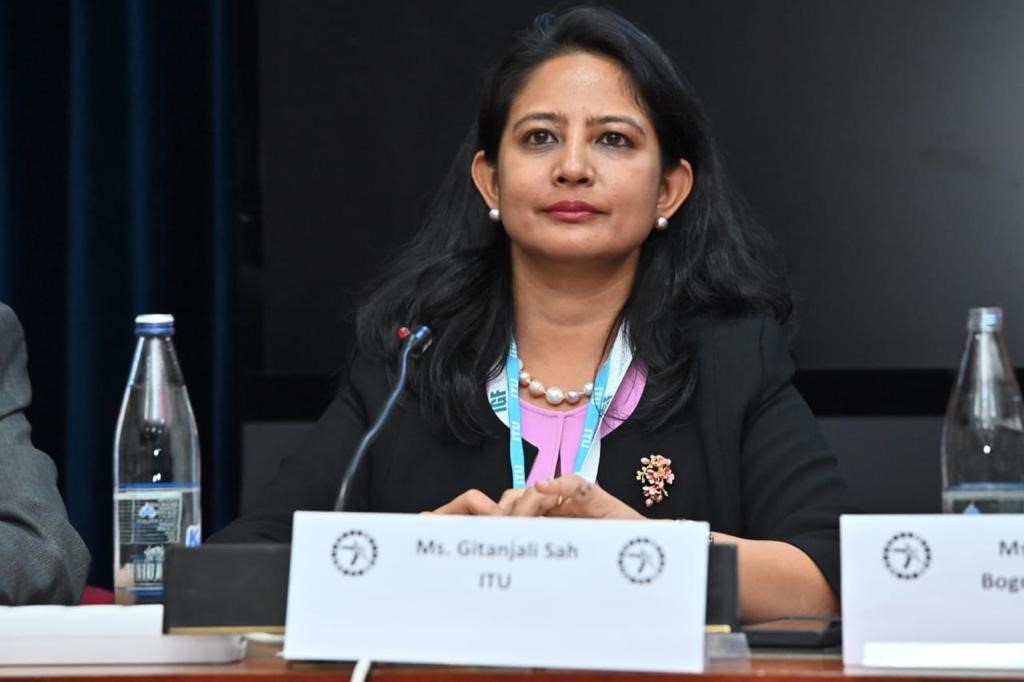
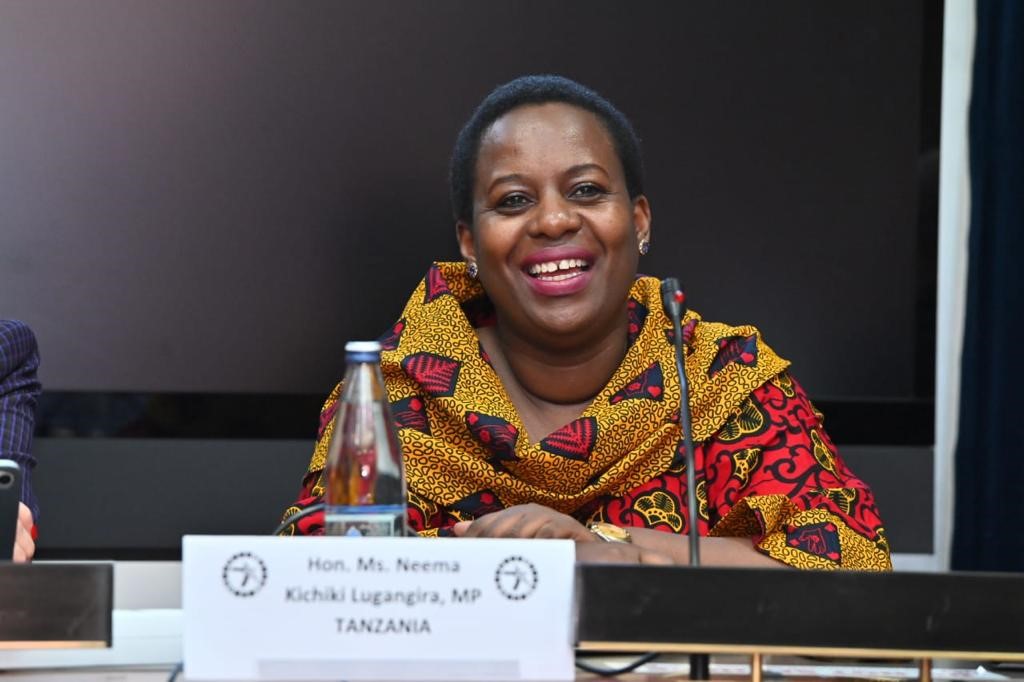
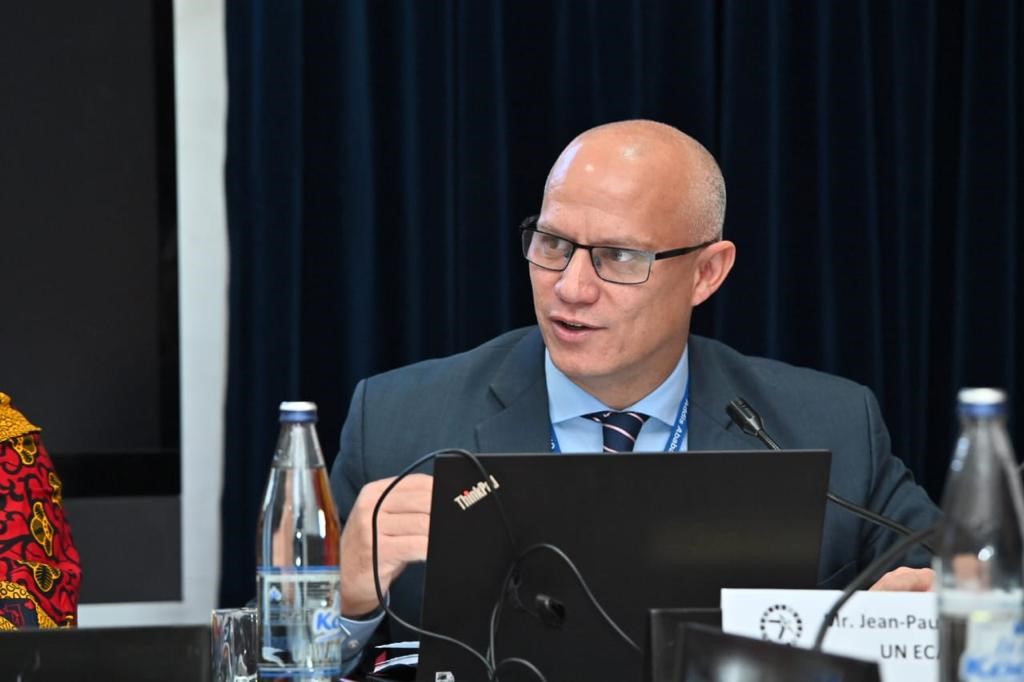
.png?maxwidth=2160)
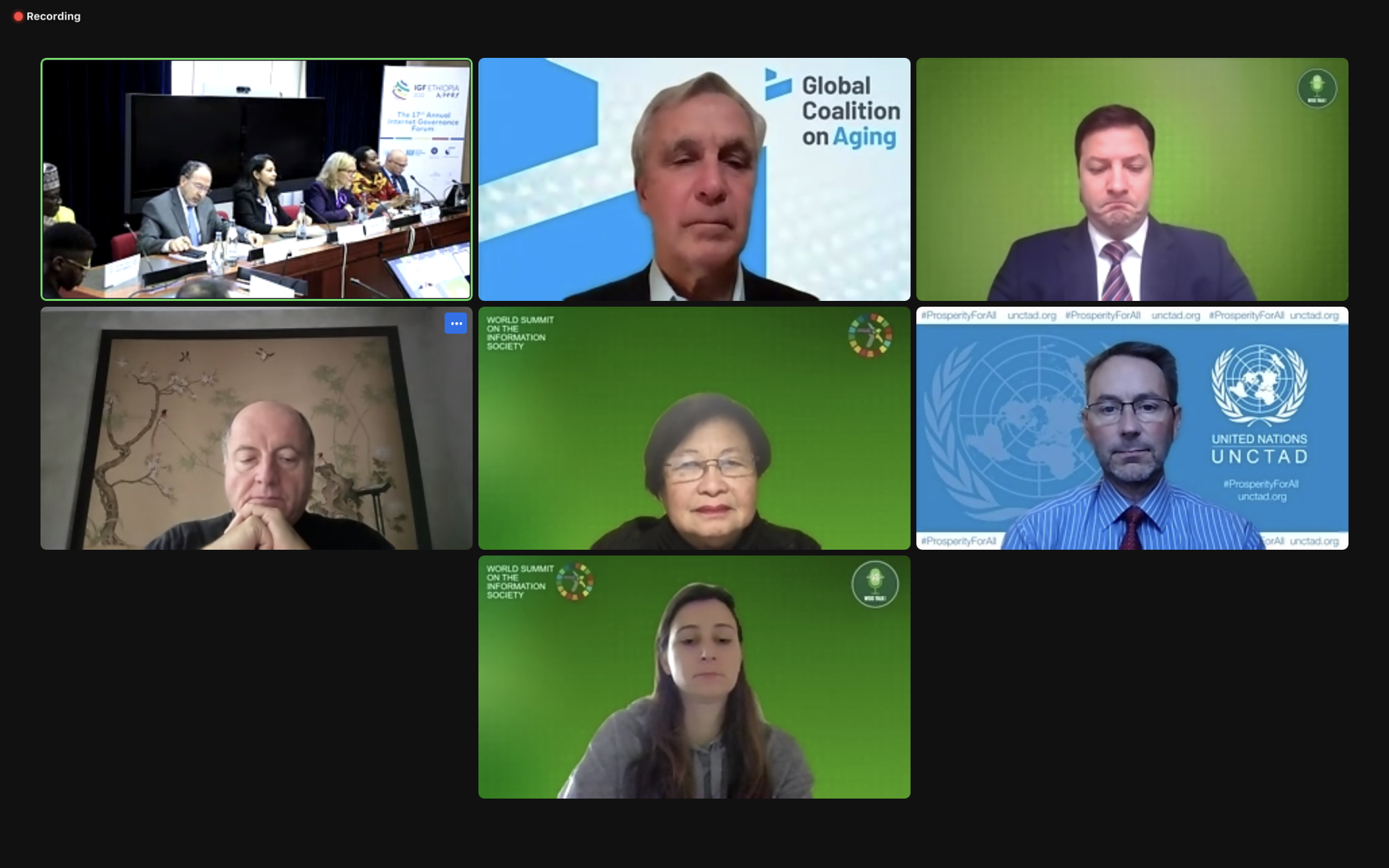
.png?maxwidth=2160)
